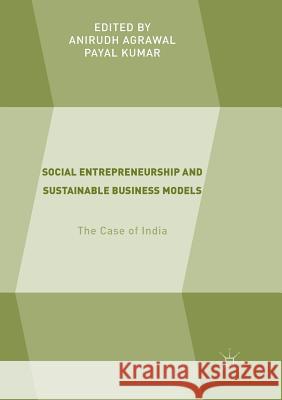Social Entrepreneurship and Sustainable Business Models: The Case of India » książka
topmenu
Social Entrepreneurship and Sustainable Business Models: The Case of India
ISBN-13: 9783030090043 / Angielski / Miękka / 2018 / 253 str.
Kategorie:
Kategorie BISAC:
Wydawca:
Palgrave MacMillan
Język:
Angielski
ISBN-13:
9783030090043
Rok wydania:
2018
Wydanie:
Softcover Repri
Ilość stron:
253
Waga:
0.34 kg
Wymiary:
21.01 x 14.81 x 1.52
Oprawa:
Miękka
Wolumenów:
01
Dodatkowe informacje:
Wydanie ilustrowane











